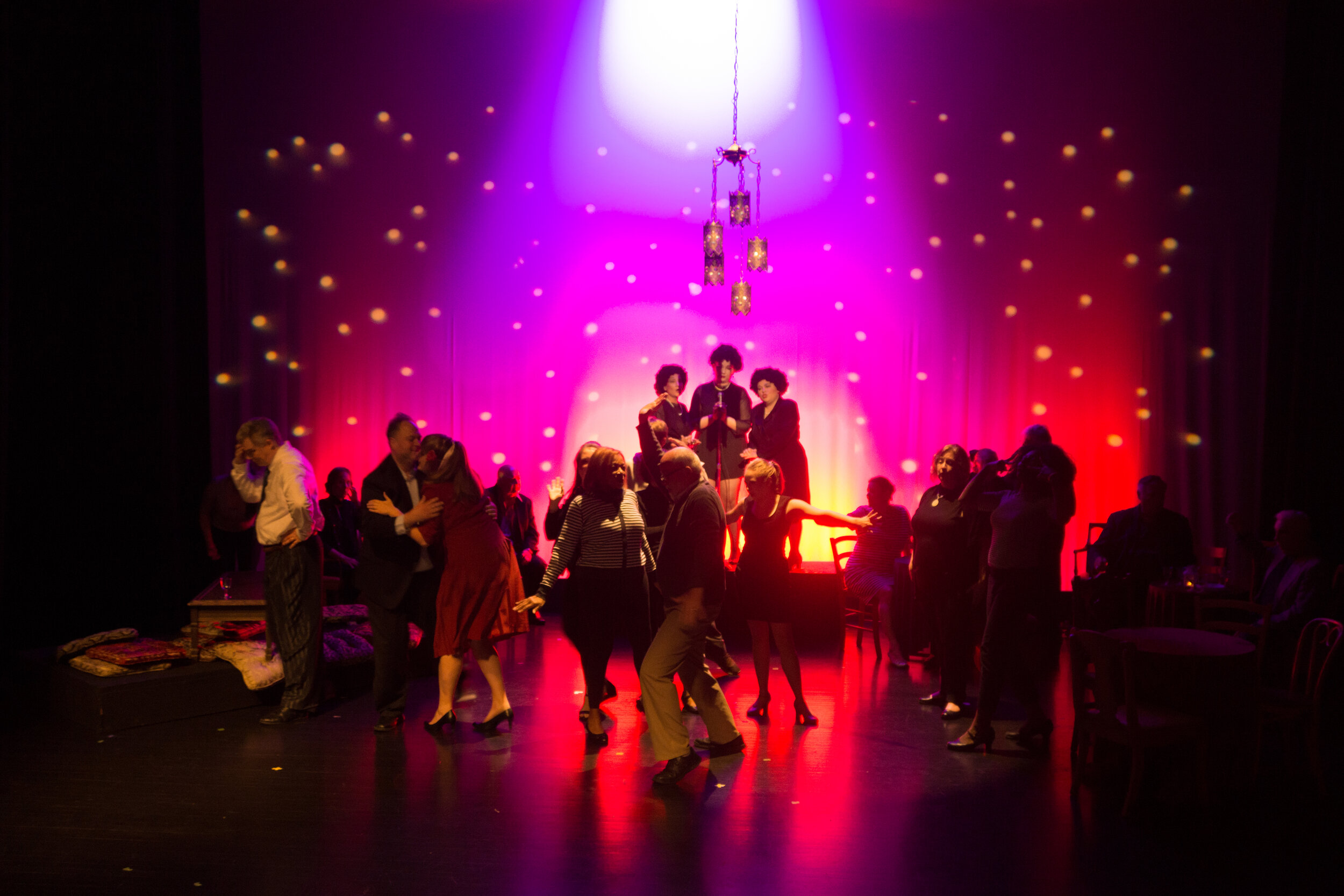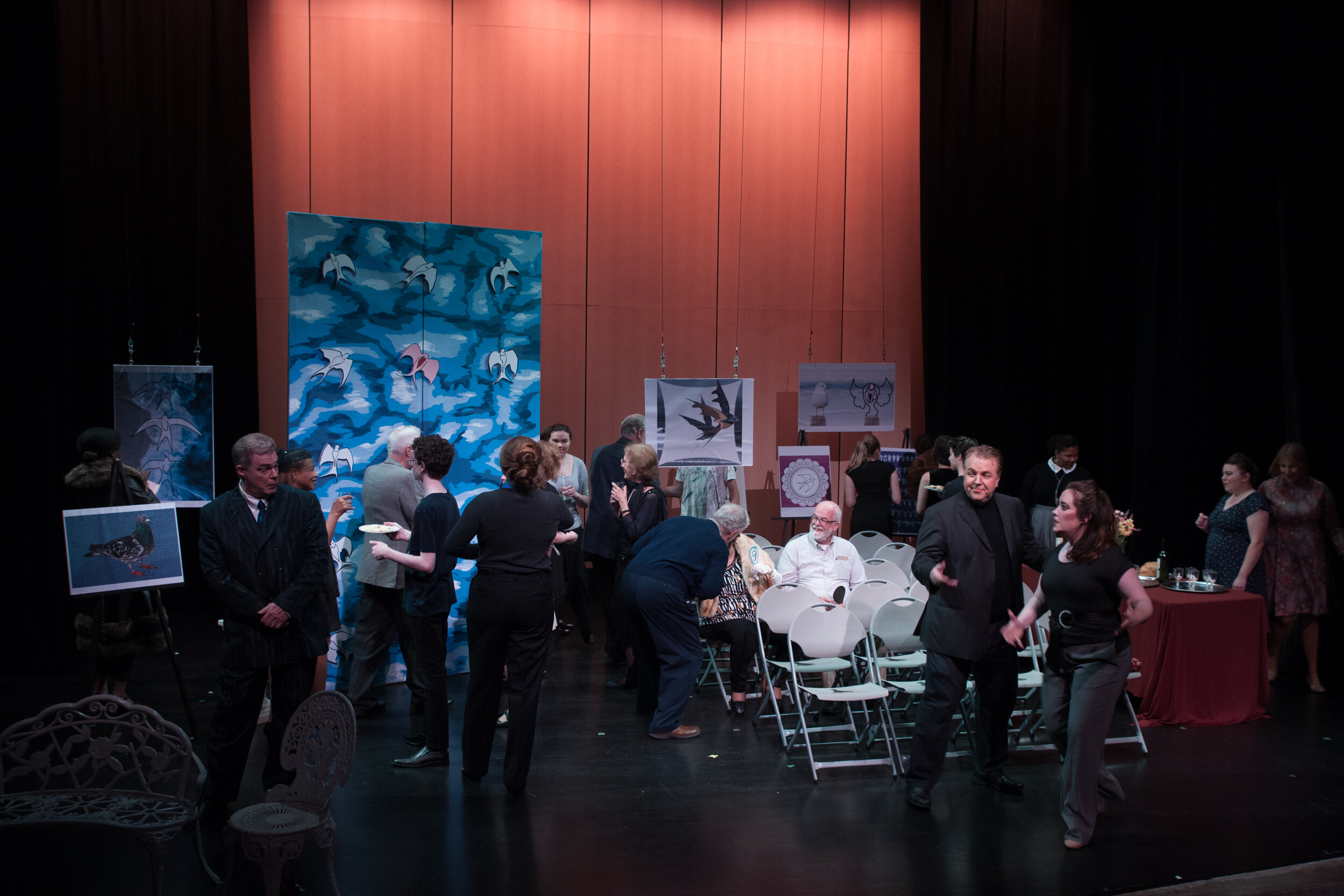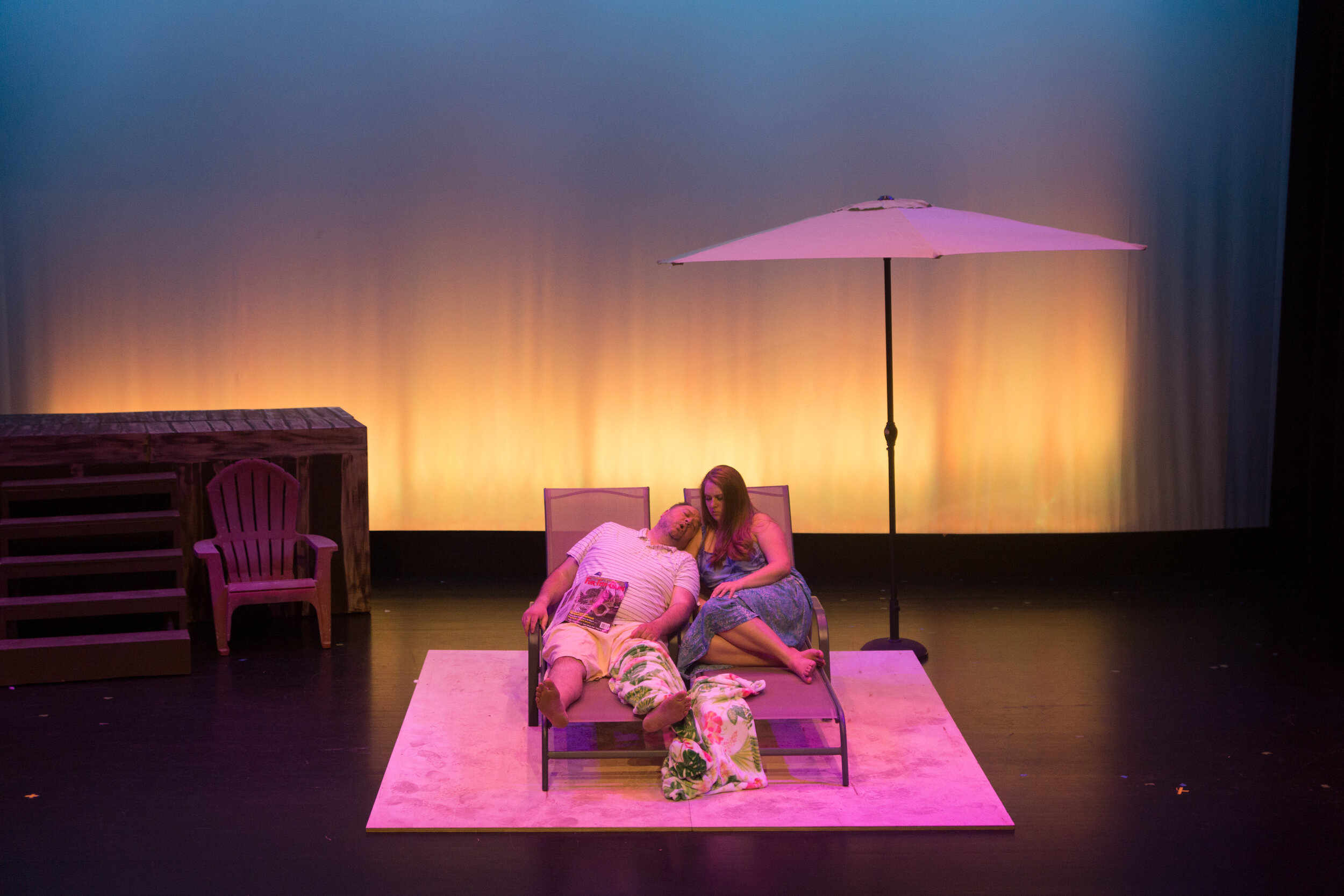La rondine came to mean something very different in the short time between its commission as an operetta in Vienna, 1913, and premiere as a full opera in Montecarlo, 1917. The social distinctions that would have made Magda’s story so shameful at the time of its creation were casualties of World War I. Micaela Baranello of the New York Times wrote in 2013, “La Rondine emerged from the war as profoundly elegiac, its prolonged incubation rendering it instantly outdated, a memorial of a more pleasurable and sensuous world.” By 1914, Puccini himself wrote that Alfred Maria Willner and Heinz Reichert’s German-language libretto for Die Schwalbe (“The Swallow”) was “sentimental” and “tiresome.” He was never satisfied with the narrative structure of the opera, writing three versions with two different endings. These criticisms strongly suggest that Puccini was dealing with the source material for La Rondine ironically. Indeed, the composer was in no way a purist, especially when it came to intention and tone; one need only remember Murger’s bitingly critical Scenes de la Vie Boheme -- the source material for the wildly romantic La boheme – to support these theories.
By the time it was premiered, Puccini’s opera was already a relic of the past; so, too are our protagonists, who have had their heyday in 1945. We meet them here in 1960. Our heroine Magda, alongside her long-term romantic partner, Rambaldo, clings to a lifestyle that has already exhausted all its possible manifestations. These two have lived so subversively that the only subversion left is traditionalism. Magda's ultimate ideal is not love—it is the power to choose her own life. She has always known this deeply enough for it to determine her choices, faltering only when peer pressure from Prunier and her fear of aging into irrelevance coincide with her meeting naïve Ruggiero. Magda asks herself if she fled from idealized romance the first time because she was afraid, and ultimately finds that she wasn’t-- she was just self-aware. Like its premiere, our La Rondine straddles the border between two eras with two very different sets of gender expectations. In 1960, we are emerging from the epoch that produced Funny Face (1957) and Gigi (1958). These films featured women who could be bold and intellectual as long as they were beautiful, and their ultimate goals were marriages to the right men. The postwar era in which our production is set is on the cusp of the women’s liberation movement, culminating in the 1968 student riots in Nanterre. The literature of this era, summed up by such authors as Simone de Beauvoir, Jean-Paul Sartre, Albert Camus, and the French “anti-romanticism,” show the possibility that conventional love, self-sacrifice, and marriage may not be everyone’s dream.
Inspired by this era of postwar-Paris, I am reimagining La rondine as an allegory of real-life characters: Magda as the feminist writer Simone de Beauvoir (here, a visual artist in the tradition of Pop-Art and Fluxus), Rambaldo as Jean-Paul Sartre, the father of existentialism and de Beauvoir’s lifelong romantic companion, and Ruggiero as Nelson Algren, the younger American writer with whom de Beauvoir had a passionate affair. The affair ended when Algren expressed his need for a partner who would be entirely his. De Beauvoir and Sartre’s relationship was serious and non-monogamous; she referred to it as “her life’s greatest project.” The biggest hurdle the couple faced was her relationship with Algren. In our Rondine, Magda and Rombardo’s open relationship has been going beautifully for years until Magda breaks their rules by falling in love with Ruggiero. De Beauvoir said she wanted “to play the devoted wife [with Algren] for at least a few months of her life.” Ultimately, both real and fictional couples recovered.
La rondine is about regret, fear of regret and, ultimately, affirmation. It is the story of people trying to rewrite their pasts, and realizing they never needed to. Understood from the viewpoint of the 1960s onward, the opera has a happy ending, not a tragic one. Magda gives Ruggiero the ultimate kindness by releasing him with his world views intact; Rambaldo does the same for Magda by welcoming her back into the life she intentionally created for herself, newly enriched by having purged her fear of regret. Her entire relationship with Ruggiero is based on a decades-old fantasy. She got caught up in a moment, he fell in love, and her choice to leave, presenting her reasons for it the way she does, is the right one for her and an educational one for him. La Rondine, then, is about people like Magda and Ruggiero learning valuable lessons: asking questions and listening to the answers, and being true to oneself and one’s values.



